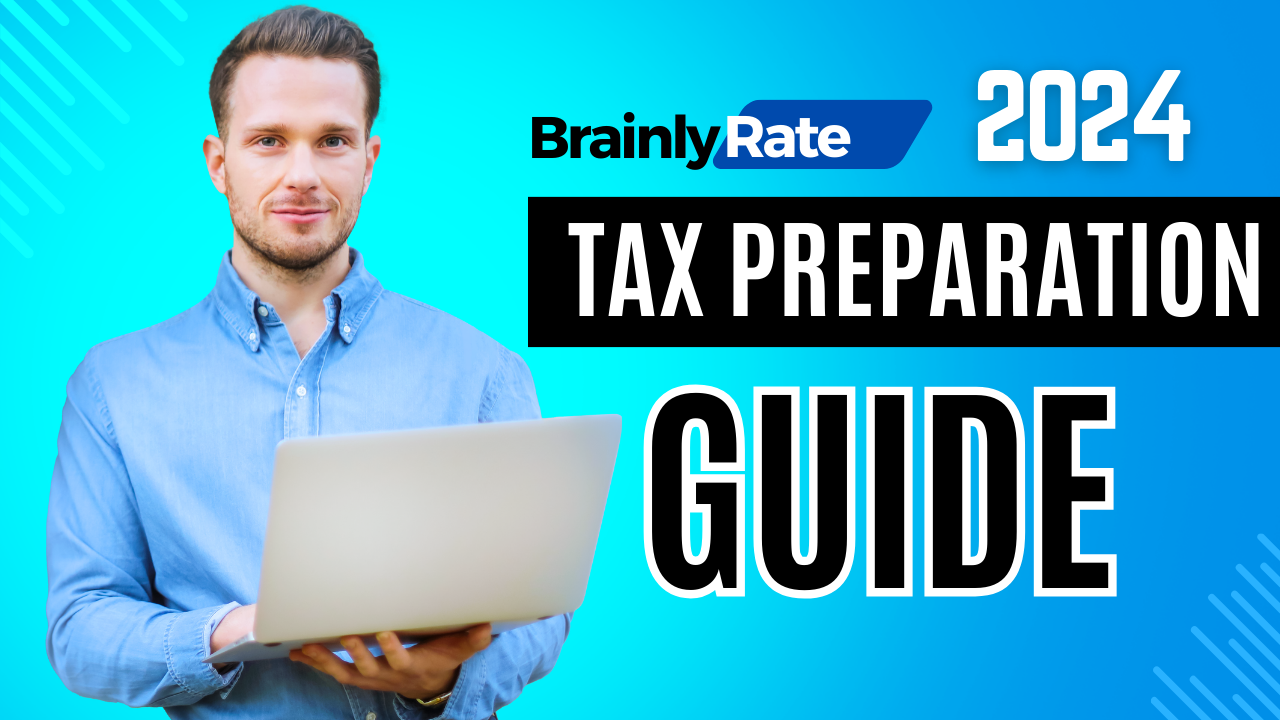As we step into 2024, it’s crucial to stay informed about the latest tax changes and updates. Preparing your taxes can be a daunting task, but with the right knowledge and tools, it can become a manageable and even empowering process. This year, several changes have been introduced that could significantly impact how you file your taxes. From adjusted tax brackets to new deductions and credits, understanding these changes is key to maximizing your returns and minimizing your liabilities. Whether you’re an individual taxpayer, a self-employed professional, or a small business owner, staying on top of these changes is essential for efficient and effective tax preparation.
Understanding 2024 Tax Brackets and Rates
The Internal Revenue Service (IRS) adjusts tax brackets annually to account for inflation. This year, due to high inflation rates, these adjustments are particularly noteworthy. Understanding these changes is crucial for effective tax planning and can help you make informed financial decisions throughout the year. Here’s a breakdown of what you need to know:
- Adjusted Tax Brackets: The tax brackets for 2024 have been adjusted upwards. This means that more of your income may fall into a lower tax bracket, potentially reducing your overall tax liability. For detailed information on these brackets, visit the AARP Tax Guide.
- Impact on Taxpayers:
- Standard Deduction Increase: Along with the tax bracket adjustments, the standard deduction has also increased. This change provides a larger upfront deduction for all taxpayers, which can reduce taxable income.
- Strategic Planning: With the new brackets, you might want to consider strategies like adjusting your income tax withholding or making certain investments before the end of the tax year.
- Long-term Planning: Understanding these brackets is also crucial for long-term financial planning, including retirement and investment strategies.
These changes underscore the importance of staying informed and adapting your tax strategies accordingly. By understanding the new tax brackets and rates, you can better navigate the complexities of tax preparation and optimize your financial outcomes for 2024.
Key Tax Deadlines for 2024
When preparing your taxes, being aware of the key tax deadlines is crucial. Missing these dates can lead to penalties and added stress. For 2024, here are the important deadlines to keep in mind:
- April 15, 2024: This is the standard deadline for filing your tax returns. If you owe taxes, this is also the last day to pay without incurring penalties.
- October 15, 2024: If you filed for an extension, this is your final deadline to submit your tax return.
- Quarterly Estimated Tax Payments: For those who pay quarterly estimated taxes, remember the due dates are April 15, June 15, September 15, 2024, and January 15, 2025.
Marking these dates on your calendar can help ensure you stay on track with your tax obligations.
Essential Documents and Records to Gather
Gathering the right documents and records is a foundational step in tax preparation. Here’s a list of essential documents you should collect:
- Income Documents: W-2s, 1099s, income from investments, and any other sources of income.
- Deduction Records: Receipts for charitable donations, medical expenses, and business expenses if you’re self-employed.
- Tax Credits Information: Documents related to education expenses, child care costs, and other eligible tax credits.
Tips for Organizing and Storing Documents
- Create a Filing System: Organize your documents by category (income, deductions, credits) and by date. This makes it easier to find what you need when filling out your tax forms.
- Go Digital: Consider scanning your documents and storing them digitally. This not only saves physical space but also makes it easier to retrieve and back up important information.
- Keep Records Safe: Store your documents in a secure place, whether it’s a locked filing cabinet or an encrypted digital folder. Remember, these documents often contain sensitive personal information.
- Hold onto Records: It’s advisable to keep tax records for at least three years from the date you filed your original return, or two years from the date you paid the tax, whichever is later.
Properly organizing and storing your tax documents can save you time and help avoid errors when filing your taxes. Remember, thorough record-keeping is a key component of efficient tax preparation.
Changes in Tax Deductions and Credits for 2024
The landscape of tax deductions and credits often evolves, and 2024 is no exception. Understanding these changes is vital for maximizing your tax benefits. Here’s an overview:
- New Deductions and Credits: Stay alert for any new deductions or credits introduced for the 2024 tax year. These could include incentives for energy-efficient home improvements, educational expenses, or changes in healthcare-related deductions.
- Altered Deductions and Credits: Existing deductions and credits might have undergone changes in their eligibility criteria or the amount that can be claimed. For instance, adjustments in the Child Tax Credit or Earned Income Tax Credit could significantly impact your tax return.
How These Changes Affect Tax Returns
- Reduced Tax Liability: New or expanded deductions and credits can lower your overall tax liability.
- Planning Your Finances: Understanding these changes can help in financial planning, ensuring you make eligible expenditures or investments throughout the year.
- Avoiding Missed Opportunities: Being unaware of these changes could mean missing out on valuable tax-saving opportunities.
Staying informed about these changes is crucial for optimizing your tax return. Regularly checking updates from reliable sources can keep you ahead in your tax preparation journey.
Utilizing IRS Resources and Tools
The IRS offers a variety of resources and tools that can greatly assist taxpayers in navigating the complexities of tax preparation. Here’s how you can utilize them:
- IRS Official Website: The IRS official website is a treasure trove of information, providing everything from tax forms to detailed guides on various tax topics.
- Interactive Tax Assistant: This tool helps answer many tax law questions, including whether a type of income is taxable, or if you’re eligible for certain credits and deductions.
- Tax Withholding Estimator: For those employed, this tool can help you determine if the right amount of tax is being withheld from your paycheck.
Benefits of Using IRS Tools
- Accuracy and Compliance: These tools ensure that you are up-to-date with the latest tax laws and regulations, reducing the risk of errors.
- Ease of Tax Preparation: With user-friendly interfaces, these tools simplify the process of preparing and filing your taxes.
- Informed Decision Making: They provide valuable insights that can help in making informed tax-related decisions.
Leveraging these IRS resources can make the process of tax preparation more manageable and efficient.
Advanced Tax Preparation Strategies
Maximizing Deductions and Credits
Effectively maximizing deductions and credits is a key strategy in reducing your tax liability. Here are some strategies to ensure you’re claiming all that you’re eligible for:
- Stay Informed: Keep up-to-date with the latest tax laws. Changes can occur yearly, impacting what deductions and credits are available.
- Itemize When Beneficial: While taking the standard deduction is simpler, itemizing can lead to greater savings if your individual deductions exceed the standard amount.
- Utilize Retirement Contributions: Contributions to retirement accounts like IRAs or 401(k)s can be tax-deductible, lowering your taxable income.
- Leverage Education Credits: If applicable, take advantage of education-related credits like the American Opportunity Credit or Lifetime Learning Credit.
- Healthcare Expenses: For those with significant medical expenses, itemizing these costs can provide substantial deductions.
Identifying Eligible Deductions and Credits
- Consult Tax Software or Professionals: Utilize reliable tax software or consult with a tax professional. They can help identify deductions and credits specific to your situation.
- Review Past Returns: Look at your previous year’s tax returns to ensure you’re not overlooking recurring deductions or credits.
Implementing these strategies can significantly impact your tax return, potentially leading to substantial savings.
Handling Self-Employment and Business Taxes
For self-employed individuals and business owners, tax preparation involves additional layers of complexity. Here are some key considerations:
- Understand Your Tax Obligations: Self-employed individuals are responsible for both income tax and self-employment tax, which covers Social Security and Medicare taxes.
- Keep Impeccable Records: Maintain detailed records of all income and expenses. This is crucial for accurate tax filing and can be invaluable in case of an audit.
- Deduct Business Expenses: You can deduct legitimate business expenses, which reduce your taxable income. These might include home office expenses, travel costs, and equipment purchases.
- Make Estimated Tax Payments: If you expect to owe $1,000 or more when you file your return, you should be making quarterly estimated tax payments to avoid penalties.
Specific Tax Considerations for Business Owners
- Choose the Right Business Structure: Your business structure (sole proprietorship, LLC, corporation, etc.) affects how you report income and expenses and can have significant tax implications.
- Utilize Business Tax Credits: Be aware of tax credits specific to businesses, such as those for hiring certain employees or for research and development activities.
- Plan for Retirement Contributions: Contributions to SEP-IRAs or solo 401(k)s not only help with retirement savings but also offer tax advantages.
For more detailed guidance, self-employed individuals and business owners can refer to resources like TurboTax Tax Tips, which provide valuable information tailored to their unique tax situations.
Navigating the complexities of self-employment and business taxes can be challenging, but with the right approach and resources, it can also be an opportunity to maximize your tax benefits.
Avoiding Common Tax Filing Mistakes
Navigating tax season can be tricky, and it’s easy to fall into common pitfalls. Here are some tips to help you avoid these mistakes:
- Incorrect or Incomplete Information: Ensure all personal information, including Social Security numbers, is accurate. Double-check all entries for accuracy.
- Overlooking Deductions or Credits: Stay informed about potential deductions and credits. Missing these can increase your tax liability or reduce your refund.
- Filing Status Errors: Choose the correct filing status. Whether you file as Single, Married Filing Jointly, or Head of Household can significantly impact your tax calculations.
- Mathematical Mistakes: Simple math errors can lead to processing delays or incorrect tax assessments.
How to Avoid These Mistakes
- Use Reliable Tax Software: Tax software can help prevent many of these errors by guiding you through the filing process and checking for common mistakes.
- Seek Professional Advice: If your tax situation is complex, consider consulting a tax professional.
Avoiding these common errors can save you time, money, and potential headaches during tax season.
Electronic Filing and Tax Software Options
Electronic filing (e-filing) and using tax software have revolutionized the way we handle tax returns. Here’s why they are beneficial:
- Accuracy and Speed: E-filing reduces the risk of errors and speeds up the processing of returns. You can receive your refund faster, especially if you opt for direct deposit.
- Convenience: File your taxes from the comfort of your home, at any time.
- Security: E-filing is secure, using advanced encryption technology to protect your data.
Comparison of Popular Tax Software Options
- TurboTax: Known for its user-friendly interface, TurboTax offers guided tax preparation and is ideal for a variety of tax situations, from simple to complex. For more information, visit TurboTax Tax Tips.
- H&R Block: Offers both online and in-person tax filing options. It’s a great choice for those who might want the option of professional assistance.
- TaxAct: A more affordable option, suitable for those who are confident in handling their taxes with minimal guidance.
Each of these options has its unique features and pricing structures, so it’s important to choose one that best fits your specific tax needs and preferences. Utilizing these tools can greatly simplify the tax filing process, ensuring accuracy and efficiency.
When to Seek Professional Tax Help
There are certain scenarios where consulting a tax professional is not just advisable, but can be crucial for ensuring accuracy and maximizing tax benefits. Consider seeking professional help in the following situations:
- Complex Financial Situations: If you have multiple income streams, investments, or own rental properties, a tax professional can help navigate the complexities.
- Major Life Changes: Events like marriage, divorce, having a child, or the death of a spouse can significantly alter your tax situation.
- Starting or Owning a Business: Business taxes can be particularly complicated, and professional guidance can be invaluable.
- Past Tax Issues: If you’ve had problems with the IRS in the past, such as audits or back taxes, a professional can provide the necessary expertise.
FAQs
How do I prepare for income tax?
Preparing for income tax involves several key steps:
- Gather Documentation: Collect all necessary documents such as W-2s, 1099s, receipts for deductions, and previous year’s tax return.
- Understand Your Tax Obligations: Be aware of your filing status, which tax brackets you fall into, and any potential deductions or credits you may be eligible for.
- Organize Your Information: Sort your documents and categorize them for easy access during filing.
- Decide on a Filing Method: Choose whether to file taxes yourself using software or seek professional help.
- Check Deadlines: Be aware of the tax filing deadline and plan accordingly to avoid late filing.
How do you calculate tax?
Calculating tax involves a few steps:
- Determine Taxable Income: Subtract any deductions and exemptions from your total income to find your taxable income.
- Apply the Correct Tax Rate: Based on your taxable income, apply the appropriate tax rate. The U.S. uses a progressive tax system, so different portions of your income may be taxed at different rates.
- Consider Credits and Additional Taxes: Apply any eligible tax credits. Also, include additional taxes if applicable, such as self-employment tax.
- Use Tax Software or Tables: For accuracy, use tax software or IRS tax tables to calculate your total tax liability.




